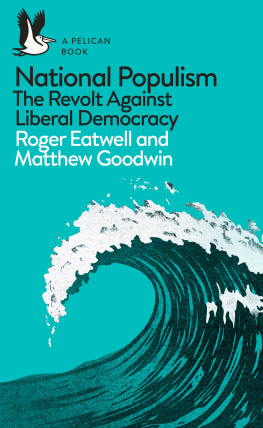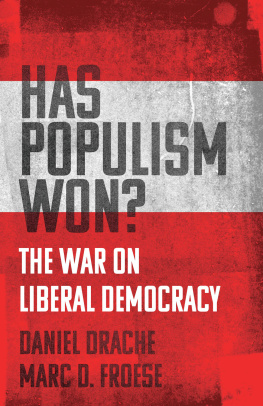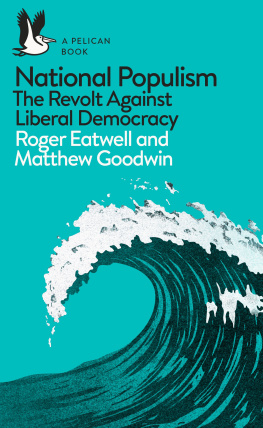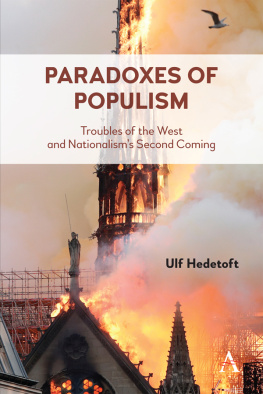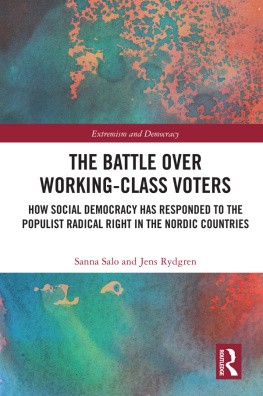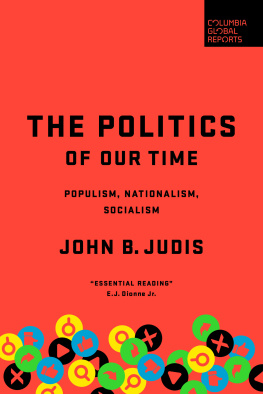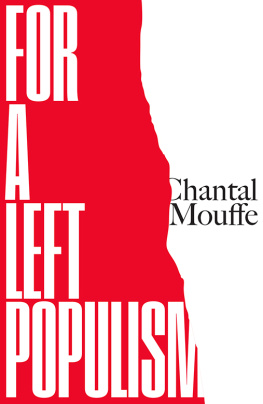- Economics: The Users Guide Ha-Joon Chang
- Human Evolution Robin Dunbar
- Revolutionary Russia, 18911991 Orlando Figes
- The Domesticated Brain Bruce Hood
- Greek and Roman Political Ideas Melissa Lane
- Classical Literature Richard Jenkyns
- Who Governs Britain? Anthony King
- How to See the World Nicholas Mirzoeff
- The Meaning of Science Tim Lewens
- Social Class in the 21st Century Mike Savage
- The European Union: A Citizens Guide Chris Bickerton
- The Caliphate Hugh Kennedy
- Islam: The Essentials Tariq Ramadan
- Basic Income: And How We Can Make It Happen Guy Standing
- Think Like an Anthropologist Matthew Engelke
- Hermeneutics: Facts and Interpretation in the Age of Information John D. Caputo
- Being Ecological Timothy Morton
- Object-Oriented Ontology: A New Theory of Everything Graham Harman
- Marx and Marxism Gregory Claeys
- The Human Planet: How We Created the Anthropocene Simon L. Lewis and Mark A. Maslin
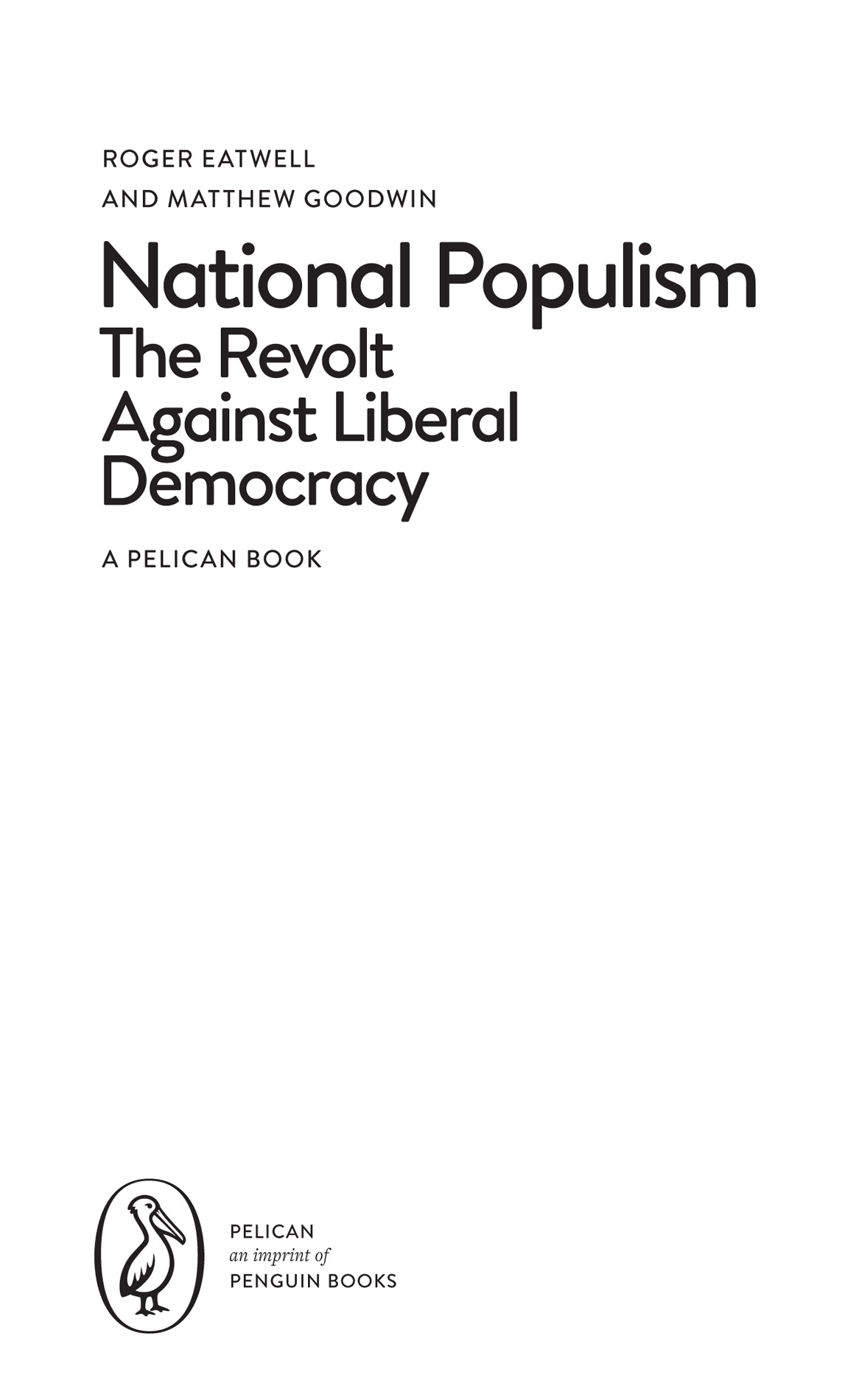
PELICAN BOOKS
UK | USA | Canada | Ireland | Australia
India | New Zealand | South Africa
Penguin Books is part of the Penguin Random House group of companies whose addresses can be found at global.penguinrandomhouse.com.
First published in 2018
Copyright Roger Eatwell and Matthew Goodwin, 2018
The moral rights of the authors have been asserted
Book design by Matthew Young
Cover design by Matthew Young
ISBN: 978-0-241-31201-8
Preface
Across much of the West, especially in Europe and the US, national populism is now a serious force. Our argument in this book is that to really make sense of this movement we need to take a step back and look at the deep, long-term trends that have been reshaping our societies over decades, if not longer.
We are academics who have researched this topic for many years. Roger Eatwell specializes in political parties, traditions and ideas, including fascism, which, for reasons that we will show, is different from national populism. Matt Goodwin is a political sociologist who looks at why growing numbers of people across the West are abandoning the mainstream for national populism. We hope to offer readers a unique insight into what has become, in only a short period, one of the most controversial yet misunderstood movements of our times.
Many people have worked or talked with us about these issues. They are too numerous to name individually, but we would particularly like to thank: Noah Atkinson, Jonathan Boyd, Bobby Duffy, Harold Clarke, Stefan Cornibert, David Cutts, James Dennison, James Eatwell, Judith Eatwell, Jane Farrant, Robert Ford, Craig Fowlie, David Goodhart, Oliver Heath, Simon Hix, Eric Kaufmann, Marta Lorimer, Nonna Mayer, Fiona McAdoo, Caitlin Milazzo, Michael Minkenberg, Brian Neve, Mark Pickup, Jon Portes, Jacob Poushter, Jens Rydgren, Thomas Raines, Bruce Stokes and Paul Whiteley.
Last, but by no means least, we would like to thank our literary agent, Charlie Brotherstone of Brotherstone Creative Management, for his helpful comments and encouragement, Chloe Currens, our editor at Penguin Books, who provided us with an extremely helpful set of comments on an earlier draft, Linden Lawson, our proactive copy editor and Penguins helpful marketeers Isabel Blake and Julie Woon.
Any errors or faults which remain are entirely our own.
R. E. and M. G. July 2018
Introduction
This book is about national populism, a movement that in the early years of the twenty-first century is increasingly challenging mainstream politics in the West. National populists prioritize the culture and interests of the nation, and promise to give voice to a people who feel that they have been neglected, even held in contempt, by distant and often corrupt elites.
It is an ideology rooted in very deep and long-term currents that have been swirling beneath our democracies and gaining strength over many decades. In this book we explore these currents, setting out an overview of how politics is changing in Europe and the US. Our broad argument is that national populism is here to stay.
We decided to write this book in 2016 amid two moments that shocked the West: when the billionaire and celebrity businessman Donald Trump was officially nominated as the Republican presidential candidate and then defeated Hillary Clinton in the race to the White House; and when more than half of Britains voters stunned the world by voting for Brexit, choosing to withdraw their country from the European Union (EU), an organization it had joined in the 1970s.
Few pundits saw these results coming. Only two weeks before the 2016 presidential election, the New York Timess election forecast confidently told readers that Hillary Clinton had a 93 per cent chance of winning the presidency. Others put it at 99 per cent and pondered whether she might even turn Texas blue on her way to the White House.
In Britain, more than 300 scholars, journalists and pollsters were asked to predict what would happen at the 2016 referendum and 90 per cent thought that British voters would choose to remain in the EU. Gambling on politics is legal in Britain, and so, had you bet 100 on Brexit on the day of the referendum, you would have made a 300 profit in the morning and 900 in the evening. The groupthink was certain that Remain would win, even though many of the online polls were suggesting the opposite.
The American engineer W. Edwards Deming once said: In God we trust; all others bring data. Yet though we live in an era when we have more data than ever before, hardly anyone successfully read the public mood. We think this is because too many people are focusing too much on the short term and failing to take into account the historic shifts in politics, culture and economics that are now having profound effects on the outcome of our elections.
National populists emerged long before the financial crisis that erupted in 2008 and the Great Recession that followed. Their supporters are more diverse than the stereotypical angry old white men who, we are frequently told, will soon be replaced by a new generation of tolerant Millennials. Brexit and Trump actually followed the much longer rise of national populists across Europe, like Marine Le Pen in France, Matteo Salvini in Italy and Viktor Orbn in Hungary. They are part of a growing revolt against mainstream politics and liberal values.
This challenge to the liberal mainstream is in general not anti-democratic. Rather, national populists are opposed to certain aspects of liberal democracy as it has evolved in the West. Contrary to some of the hysterical reactions that greeted Trump and Brexit, those who support these movements are not fascists who want to tear down our core political institutions. A small minority do, but most have understandable concerns about the fact that these institutions are not representative of society as a whole and, if anything, are becoming ever more cut adrift from the average citizen.
Shortly before Trump won the White House, more than half of white Americans without degrees felt that Washington did not represent people like them, while just prior to the Brexit victory nearly one in two of Britains workers felt that people like them no longer had a voice in the national conversation. Against the backdrop of major scandals over lobbying, dark money, the abuse of parliamentary expenses, lucrative speeches for major banks and revolving-door politics, when former politicians exploit their contacts to finance private deals, is it any wonder that large numbers of citizens today are openly questioning the trustworthiness of their representatives?

